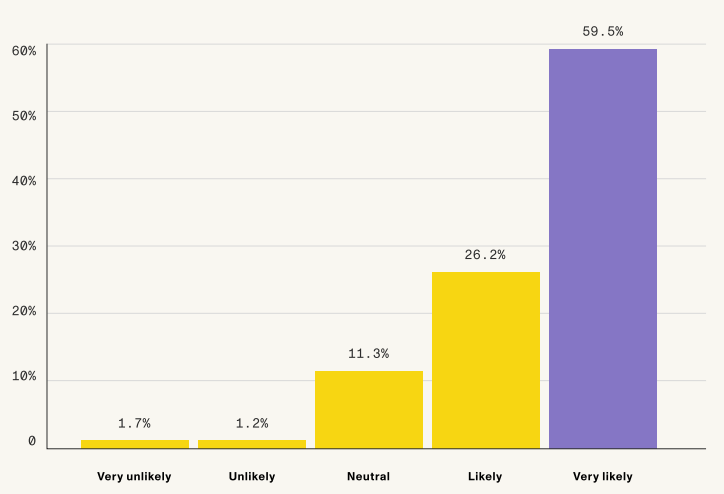As today’s digital landscape continues to evolve, the idea of individual security has never been more paramount. In this regard, a technology called Zero-Knowledge Proofs (ZKPs) has come forth and presented itself as a revolutionary force, especially within the realm of privacy tech.
To put it simply, ZKPs are cryptographic entities that allow users to verify the provenance/veracity of a given statement without any information — such as one’s social security number, issued ID info, etc — having to be divulged. And even though the concept may appear quite basic on the outside, its real-world implementations have the potential to usher in far-reaching consequences across several industries.
Moreover, in addition to ZKPs facilitating authentication processes securely, their utility also extends into other areas. For example, they can play a major role in the concealment of data while allowing for the meshing of numerous off-chain transactions into a single entity, all while ensuring the integrity of the said information. As a result of their manifold benefits, ZKPs have witnessed growing adoption since the start of 2023.

What do the numbers have to say?
As per research data pertaining to ZKPs, the crypto community seems to be quite excited about the future of these powerful tools. To elaborate, 46% of all individuals who were surveyed as part of the research study believe that ZK’s role in enhancing privacy and personal identity will be a game changer and mister a lot of growth in the near term, while 42.9% believe that ZKs most pertinent use cases will emerge within the realm of scaling.
Another study revealed that 87.5% of all crypto users are more willing to adopt dApps offering ZKP-related benefits as opposed to those that don’t. This is pertinent to note because over the first quarter of 2022 alone, a whopping $1.2 billion was lost due to various hacks and bridge exploits.

The same report also noted that 90% of the interviewed individuals believe cryptocurrencies utilizing ZKPs are more attractive than their counterparts. A similar sentiment was also echoed in Messari’s Crypto Theses 2022, which noted that in the long term, most advancements centering around digital assets would converge toward Zero Knowledge-based innovations. Last but not least, rising interest in this technology is bolstered by the fact that the total market capitalization of the industry’s leading ZK-tokens stands at nearly $9 billion.
Leading the ZKP revolution
At the helm of the aforementioned ZKP revolution stands Horizen, a blockchain ecosystem rooted in the ethos of security and interoperability. Thanks to its sidechain module, Zendoo, Horizen is able to provide clients with a high degree of scalability, data security/privacy, etc — thus allowing them to develop custom-build public or private blockchains.
To elaborate, Horizen features support for zk-SNARKs, thereby not only allowing for ‘selective confidentiality’ but also laying the groundwork for one of the most elaborate decentralized multi-tiered node infrastructures in the market today. Also, the launch of Zendoo heralds the dawn of Horizen’s move from a more privacy-centric digital asset network to a more zk-SNARK enhanced, cross-chain platform that is designed to be not only highly secure and scalable but also flexible in its design.
Similarly, the recent deployment of Horizen EON, a public EVM-compatible sidechain, as well as the release of the project’s associated Web3 wallet (Cobalt) and crypto minting solution (TokenMint) highlight its commitment to a user-friendly experience. If that wasn’t enough, Horizen has made a concerted effort to eliminate any ‘shielded pools’ from its mainnet so as to bolster privacy and drive network growth.
Lastly, Horizen has also entered into various long-term partnerships with leading digital entities, such as Wanchain and Covalent, putting the firm at the forefront of the simmering ZKP revolution.
Looking toward a new horizon
As the field of study surrounding ZKPs continues to evolve, a number of new domains utilizing this technology are beginning to emerge. One such frontier is called Zero-Knowledge Machine Learning (ZKML), which, as the name suggests, leverages ZKPs to ensure the correctness and privacy of machine learning models. To elaborate, when using these tools, it is possible for individuals to delegate machine learning execution and obtain proof of correctness, thus ensuring a high degree of transparency.
Furthermore, in addition to preserving privacy, ZKML systems are also capable of providing the provenance of a selected data set privately — even when the information in question has been altered. Therefore, the amalgamation of this technology with ZKPs can lead to the development of several novel applications pertaining to the real-time analysis of medical scans, detection/prevention of digital fraud, amongst other things.
Therefore as the use of decentralized tech continues to grow, ZKPs are poised to revolutionize multiple sectors with projects like Horizenleading the way. Therefore, it will be interesting to see how this sector continues to evolve and grow from here on out!